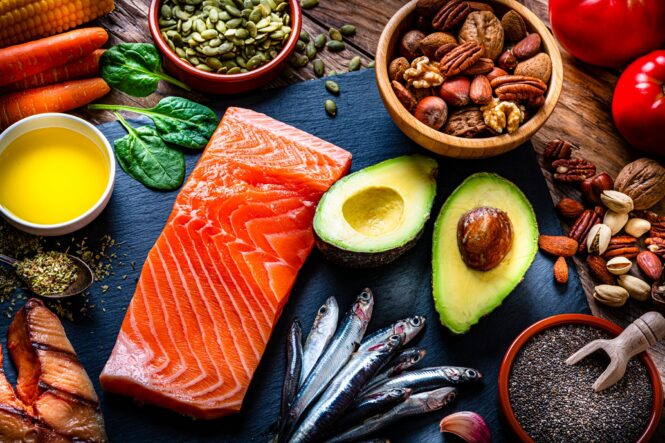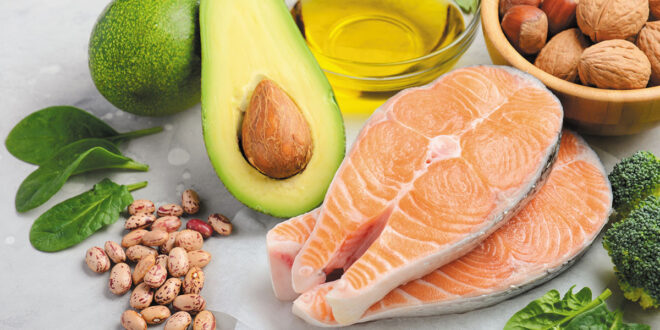Fats are an essential part of a healthy diet. They’re needed for your body to function optimally and they help keep you feeling full and satiated between meals. But not all fats are created equal: some are good for you, while others may be bad for your heart health and the overall health of your body. In this article, we will explain why you need fats in your diet and how to tell the difference between good fats and bad ones.
Good Fats vs Bad Fats

It used to be that all fats were vilified, but the tides have turned in the last 30 years or so. Nowadays, people are extolling the virtues of certain fats for health, and good fats vs bad fats is a hot topic in the world of nutrition and health. It’s important to know the difference between these types of fat, their effects on your body and how to consume them for optimal health.
There are two main types of fats: saturated and unsaturated fats. Saturated fats are solid at room temperature (such as butter or animal meats), while unsaturated fats are liquid at room temperature (such as vegetable oils).
However, not all saturated fats are bad for you. Although they have been attacked, there is some research to suggest that some saturated fats may have benefits when consumed in moderation. Some examples of healthy saturated fats include coconut oil and MCT oil.
Conversely, not all unsaturated fats are good for you. While many plant-based oils like olive oil, nuts and seeds, avocados, and fish oils are undoubtedly “good” types of fat, some unsaturated fats are bad.
Hydrogenated oils, also known as trans fats, are a type of unsaturated fat that has been chemically processed to prolong their shelf life and improve texture. This process is often used in the food industry to create more stable fats that don’t spoil easily. However, it can also be dangerous because it changes the structure of the fatty acids in your body. Consuming hydrogenated oils has been linked to an increased risk of heart disease and stroke. Margarine and vegetable shortening are two types of trans fats.
Why You Need (Good) Fats?

Fat is an important source of energy, and it helps the body absorb fat-soluble vitamins like A, D, E, and K. Fats also cushion and protect organs, help you absorb necessary fatty acids from food and maintain healthy skin. The type of fat you eat can affect your health in several positive ways…as long as it is a healthy (or “good”) fat. Some examples of good fats include olive oil, avocado, cold-pressed seed oils like flaxseed oil, pumpkin seed oil, borage oil, and fish oils, as well as nuts and seeds.
Dietary vs Essential Fats
There are two types of fats: essential and dietary. Essential fats are the ones that your body cannot manufacture on its own, so you need to get them from food sources. They include omega-3 fatty acids (found in fish oils), alpha-linolenic acid (found in flaxseed oil) and linoleic acid (found in borage oil). Dietary fats are those that come from animal or vegetable sources such as cheese, butter, nuts, seeds and avocados.
Fatty Acids: The Basis of All Fats
Fatty acids are long chains of carbon and hydrogen atoms, which makes them extremely versatile in their function. They can be found as the main component of cellular membranes, serving both a structural and functional role. They also play an vital role in cardiovascular function, blood pressure regulation, and energy metabolism and hormone regulation.
Essential fatty acids are the type of fats your body cannot produce on their own. The three types of essential fatty acids are:
- Linoleic acid (omega-6) is an essential fatty acid that is found in many foods, including sunflower and safflower oil. It is also found in nuts and seeds and meat from grass-fed animals. Linoleic acid is a key nutrient for skin health and helps to maintain healthy cell membranes.
- Alpha-linolenic acid (omega-3) is an essential fatty acid that is found in fish oils and flaxseed oil. Alpha-linolenic acid is an important nutrient for brain function, vision health and reducing inflammation in the body. Eicosapentaenoic acid (EPA) and docosahexaenoic acid (DHA) are long-chain omega-3 fatty acids found in fish like salmon, sardines and anchovies.
- Gamma linolenic acid (omega-6) is an essential fatty acid found in high concentrations in borage oil. It is an important nutrient for healthy cell membranes and skin health.
Striking the Balance Between Omega 3-6-9
Fatty acids are necessary for overall health. A healthy balance between omega-3, omega-6, and omega-9 fatty acids is essential for optimal health. The ratio of omega-3:omega-6 is important, but it’s also good to consider the balance between omega-9 fatty acids.
- Omega-3 fatty acids are made of eicosapentaenoic acid (EPA) and docosahexaenoic acid (DHA). These fatty acids are found in fish, flaxseed oil, chia seeds, and krill oil.
- Omega-6 fatty acids are made of linoleic acid (LA) and gamma-linolenic acid (GLA). These fatty acids are found in foods such as nuts and seeds and borage oil.
- Omega-9 fatty acids are made up of oleic acid (omega-9), which is a monounsaturated fat found in olive oil.
The Right Fats in the Right Amounts

When you have too much of a specific fat, it can lead to problems. For example, if you’re eating a diet high in saturated fats (like animal products), it can contribute to rigidity in your cells. Saturated fats also raise cholesterol levels in the blood and put you at risk for heart disease—the leading cause of death worldwide. In fact, one study found that people who were eating the most saturated fats had an increase in their risk of dying from heart disease even when they didn’t smoke cigarettes or use other unhealthy behaviors.
Here is a guide for different types of fats to use for varying health goals:
- Overall health: Fish oils. Naturopathic Labs has a top-quality fish oil, Clean Omega-3 Liquid. It offers 800mg of EPA and 500mg of DHA in a clean formula that doesn’t contain any contaminants or heavy metals.
- Female hormonal health: Borage oil and evening primrose oil. New Roots Borage Oil is organic and great for skin support as well. And Natural Factors Ultra Prim Evening Primrose Oil is a highly purified and chemical-free formula.
- Male hormonal health: Pumpkin seed oil by Now is a highly rated supplement that’s been cold-pressed and unrefined.
- Vegetarian or vegan: Vegan omega oils and flax oil. A good vegan omega oil is Nutra Vege Omega 3 Plant. It has a delicious flavor and is formulated with algal oil. Its total EPA and DHA content is 500mg. And Natural Factors Flaxseed Oil is 100% certified organic and cold-pressed for optimal potency.
- Energy: Coconut or MCT oil. A high-quality MCT oil is New Roots Organic Coconut MCT Oil. It’s unflavoured and has a ratio of 60% C8 to 40% C10.
With fats, the best advice is that getting the right fats in the right amounts is key to health. Most everyone will see benefits from taking quality fish oil each day, and the rest of your omega intake depends on your goals. Speaking with a qualified health and nutrition practitioner at a good health food store can be helpful in determining which fats are right for you.
Disclaimer: The information in this article is intended for educational and informational purposes only and should not be considered as a substitute for medical advice. Please consult your practitioner prior to taking herbs or nutritional supplements.
 Imagup General Magazine 2024
Imagup General Magazine 2024



